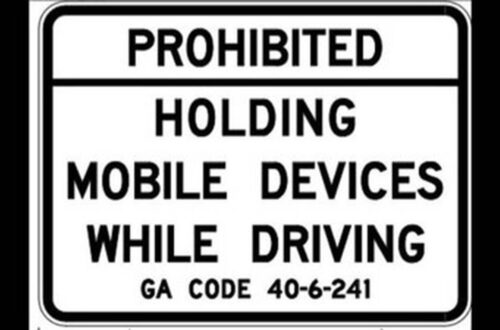Operating a vehicle while preoccupied greatly endangers your safety and the safety of others on the road. Your response time becomes delayed, heightening the probability of serious accidents that can have enduring consequences. Keep in mind, split-second choices are vital in evading disasters on the road.
Impact on Reaction Time
When driving while distracted, your reaction time is noticeably delayed, putting yourself and others at risk on the road. Your brain is unable to fully focus on the task of driving when distracted by things like texting, eating, or adjusting the radio. This delay in reaction time can be pivotal in avoiding accidents, especially in emergency situations where split-second decisions are necessary.
Imagine a scenario where a pedestrian suddenly steps into the crosswalk in front of your car. If you are distracted, it may take you a few extra seconds to realize what is happening and hit the brakes. Those few seconds could make the difference between a near miss and a tragic accident.
Increased Collision Risk
To fully grasp the dangers of distracted driving, consider the increased collision risk associated with not giving your full attention to the road. When you take your eyes off the road, even for a brief moment, you markedly increase the chances of being involved in a collision. Every time you glance at your phone, adjust the radio, or engage in a conversation with a passenger, you are diverting your attention away from the task of driving safely.
Distracted driving leads to a higher likelihood of rear-end collisions, side-swipe accidents, and even more severe crashes, such as head-on collisions. These collisions can result in property damage, injuries, or even fatalities. By failing to focus on the road ahead, you are putting yourself and others at risk.
Cognitive Distraction Effects
Considering the heightened collision risk associated with distracted driving, it is important to acknowledge the detrimental cognitive distraction effects that can greatly impair your ability to react swiftly and make sound decisions while on the road. When your focus is divided between driving and other tasks, such as texting, talking on the phone, or even daydreaming, your brain struggles to process information effectively. This cognitive overload can lead to delayed reactions to potential hazards, decreased situational awareness, and difficulty in maintaining control of your vehicle.
Moreover, cognitive distractions can affect your memory and attention span while driving. Your brain's capacity to absorb crucial details from the road environment diminishes, making it more challenging to anticipate and respond to sudden changes in traffic conditions. As a result, your ability to make split-second decisions in emergency situations is compromised, putting you and others at an increased risk of accidents. To guarantee your safety and the safety of those around you, it is essential to prioritize your attention solely on the task of driving.
Visual Attention Diversion
Amidst the dangers of distracted driving, your visual attention diversion poses a significant threat to road safety. When you take your eyes off the road, even for a split second, you increase the risk of accidents. Visual distractions can range from looking at your phone to gazing at something happening outside the car. These distractions can prevent you from noticing important cues on the road, such as traffic signals, pedestrians crossing, or sudden obstacles.
Studies have shown that visual attention diversion is a pivotal cause of accidents. Your eyes are vital for safe driving, as they provide essential information about your surroundings. By diverting your visual attention, you decrease your ability to react promptly to potential dangers. Remember, a momentary lapse in visual attention can have severe consequences on the road.
To combat visual distractions, make a conscious effort to keep your eyes on the road at all times. Avoid looking at your phone, adjusting the radio, or engaging in activities that take your eyes off the road. Prioritizing visual attention while driving is essential for your safety and the safety of others on the road.
Impaired Decision Making
Impaired decision making while driving can lead to critical errors that jeopardize your safety and that of others on the road. When your ability to make sound judgments is compromised, the risks of accidents increase to a great extent. Here are three ways impaired decision making can impact your driving:
- Delayed Reactions: Poor decision making can cause delays in your reactions to sudden changes on the road, such as a car braking unexpectedly in front of you.
- Riskier Choices: Impaired judgment may lead you to take unnecessary risks, such as trying to beat a red light or making unsafe lane changes.
- Inability to Prioritize: When your decision-making skills are impaired, you may struggle to prioritize tasks while driving, such as focusing on the road instead of distractions like your phone.
Legal Consequences of Distracted Driving
Neglecting road safety due to distractions while driving can result in severe legal consequences. In many places, laws prohibit the use of electronic devices while driving, including texting, talking on the phone, or even using GPS without a hands-free system. If caught, you may face fines, points on your license, or even the suspension of your driving privileges. These penalties can impact your insurance rates and your ability to legally operate a vehicle in the future. Additionally, if your distracted driving leads to an accident where someone is injured or killed, you could face criminal charges such as vehicular manslaughter or reckless driving. These charges come with serious legal repercussions, including possible imprisonment. It's essential to understand that the legal consequences of distracted driving extend beyond just a simple traffic ticket; they can have lasting effects on your life and the lives of others. Stay focused on the road to avoid the costly and potentially life-altering outcomes of distracted driving.
Fatalities and Injury Rates
High rates of fatalities and injuries are directly linked to distracted driving behaviors on the road. When drivers allow distractions to take their focus away from the task of driving, the consequences can be severe. Here are some key points to keep in mind:
- Increased Risk of Accidents: Distracted drivers are more likely to be involved in accidents due to delayed reaction times and impaired decision-making abilities.
- Higher Fatality Rates: Studies show that a significant number of traffic-related fatalities are a result of distracted driving, highlighting the deadly consequences of this behavior.
- Severity of Injuries: In accidents where distracted driving is a factor, the injuries sustained by drivers, passengers, and pedestrians tend to be more severe, leading to long-term consequences for those involved.
It is important to understand the direct correlation between distracted driving and the alarming rates of fatalities and injuries on the roads. By prioritizing safe driving practices and minimizing distractions, you can help reduce these devastating outcomes.
Economic Costs and Insurance Implications
When considering the aftermath of distracted driving incidents, the economic costs and insurance implications emerge as significant factors that impact both individuals and society as a whole. The economic costs associated with distracted driving accidents are substantial, ranging from property damage and medical expenses to lost productivity. Repairing vehicles, covering medical bills, and dealing with legal matters all contribute to the financial burden. Insurance premiums also tend to increase for individuals involved in distracted driving incidents, reflecting the higher risk they pose to insurers. Additionally, insurance companies may even deny coverage in some cases, leaving individuals responsible for all costs.
These economic consequences not only affect the individuals directly involved but also have broader implications for society. Increased insurance premiums can lead to financial strain for families, while the overall cost of accidents due to distraction is passed on to the public through higher insurance rates and healthcare expenses. By understanding the economic costs and insurance implications of distracted driving, individuals can better grasp the full extent of the impact and aim to prevent such incidents.
Strategies for Prevention
To reduce the risks of distracted driving, implement proactive prevention strategies in your daily habits and routines. One way to prevent distractions while driving is to plan your route and set your GPS before starting the car. This will help you stay focused on the road instead of looking at your phone for directions. Another effective strategy is to avoid multitasking behind the wheel; refrain from eating, grooming, or engaging in any activity that takes your attention away from driving. Finally, designate a passenger as a co-pilot to assist with navigation, answer calls, or adjust controls, allowing you to concentrate on driving safely. By incorporating these prevention strategies into your driving habits, you can significantly reduce the likelihood of accidents caused by distractions. Remember, the safety of yourself, your passengers, and others on the road should always be your top priority.
Frequently Asked Questions
How Do Distractions While Driving Affect a Driver's Emotional State?
When you allow distractions while driving, your emotional state can become stressed, anxious, or frustrated. Your focus shifts, causing potential danger to yourself and others. Stay attentive on the road for everyone's safety.
Can Certain Types of Distractions Lead to More Severe Accidents Than Others?
When you drive, particular distractions can notably increase the likelihood of severe accidents compared to others. Being aware of these differences and actively minimizing high-risk distractions can help you stay safe on the road.
Are There Any Long-Term Effects on a Driver's Cognitive Abilities From Frequent Distracted Driving?
Frequent distracted driving can harm your cognitive abilities long-term. Your brain struggles to focus, react quickly, and make sound decisions. Over time, this can lead to decreased mental sharpness and increased risk on the road.
Do Distractions Impact Different Age Groups of Drivers in Varying Ways?
Distractions while driving affect different age groups in unique ways. Younger drivers may struggle with inexperience, older drivers with slower reaction times. Stay focused on the road, no matter your age, to guarantee everyone's safety.
How Do Distractions While Driving Affect a Person's Ability to Navigate and Follow Directions?
When you let distractions creep in while driving, your focus wavers, making it harder to navigate and follow directions effectively. Stay alert and avoid multitasking behind the wheel to guarantee safe travels.
Conclusion
To wrap up, distracted driving poses serious risks including impaired reaction time, increased collision risk, cognitive distraction effects, visual attention diversion, impaired decision making, legal consequences, fatalities, injuries, significant costs, and insurance implications. To prevent these dangers, it is essential to stay focused on the road, avoid distractions like texting or eating while driving, and prioritize safety at all times. Remember, your actions behind the wheel can have life-altering consequences. Stay alert, stay safe.



